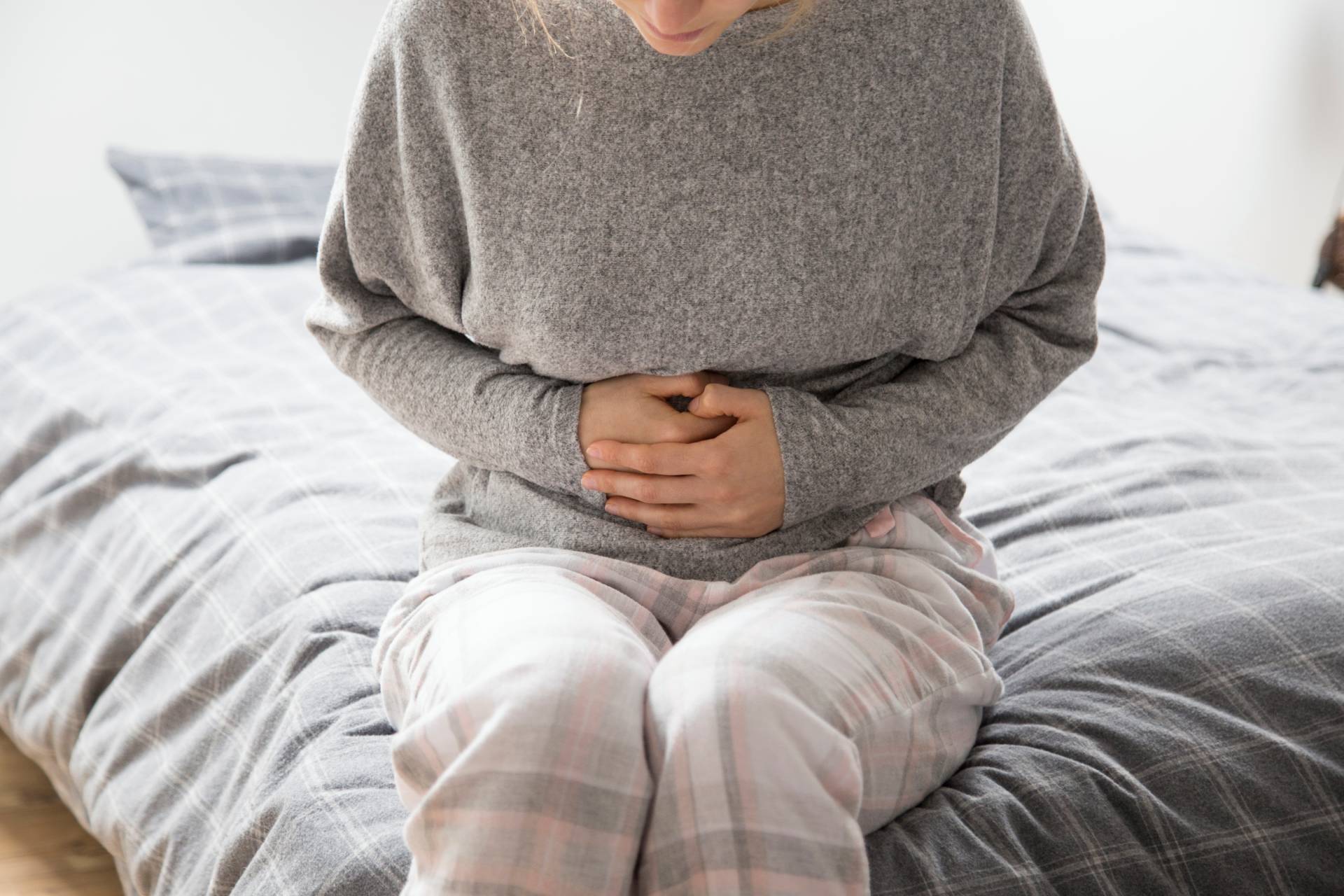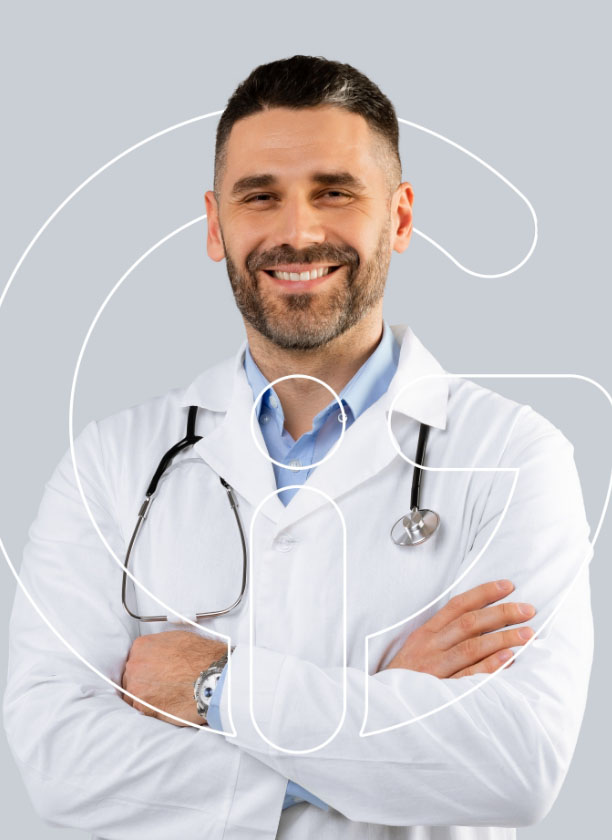Enteroscopy in Connecticut
What is an enteroscopy procedure?
An enteroscopy is an endoscopic procedure in which a lengthy, thin, flexible tube or “scope” is placed into your mouth and progressed to the jejunum (the second portion of the small intestine). Our scope has a camera and light at the end, which helps your GI specialist to clearly see the inner portion of the esophagus, stomach, and small bowel. An enteroscopy might be performed to establish the cause of GI symptoms such as abdominal pain, bleeding, or concerning x-ray results. If you need an enteroscopy, contact one of our board-certified GI specialists at Connecticut GI to learn more about the procedure. Our providers frequently conduct enteroscopy procedures for Connecticut individuals and can help you improve your GI health.

Why would someone need an enteroscopy?
The enteroscopy is typically completed to diagnose abnormalities or diseases in the small bowel. Symptoms of such issues may include:
- Unexplained diarrhea
- Abnormal tumors or growths in the small intestine
- Unexplained bleeding
- Abnormal x-ray results
To a certain extent, other exam options will depend on why you need to undergo the enteroscopy in the first place. In most patients, enteroscopy is an ideal way to diagnose and treat abnormalities in the upper GI tract, especially if they impact the second portion of the small intestine or jejunum. However, an x-ray known as the upper GI/small bowel follow-through can also evaluate the upper gastrointestinal tract. This is, however, just a diagnostic tool. Treating abnormalities will necessitate an enteroscopy and/or a surgical procedure.
What should I expect the day prior to my enteroscopy?
Before your procedure, you will be given instructions from your Connecticut GI specialist about the necessary preparations. A large number of patients will be allowed to eat normally the day prior to the procedure. Patients will be instructed not to take anything by mouth after 12:00 a.m. except for medications. It is critical to follow the guidelines provided by your GI specialist. There may also be additional instructions about your medications. In the majority of cases, your medications can be taken as usual. However, in some patients, especially those on anti-coagulants and diabetics, specific instructions will be given.
What happens during my enteroscopy?
You will be asked to enter the endoscopy facility 1 to 1.5 hours prior to your enteroscopy procedure. This is to allow time to fill out paperwork and get prepped for the procedure. You will be asked to switch into a hospital gown. An intravenous (IV) catheter will be inserted in your arm so that sedation can be administered. We will connect you to a system that will enable our providers to monitor your blood pressure, heart rate, pulse, breathing, oxygen levels, and more during and after the exam.
Once in your exam room, we’ll have you lie down on your left side on the procedure table. The IV will then be administered. Small amounts are given at a time to make sure you do not have a reaction to the medication and to give you only the amount that you need individually. After the right level of sedation is achieved, the endoscope will be gradually introduced into the mouth. The scope will be carefully advanced through the esophagus, stomach, and small intestine. A little bit of air will be injected through the scope into your GI tract to help our team see. Any fluid remaining in the upper GI tract is removed through the scope. Based on the outcome of the exam, several procedures or treatments can be suggested at the time of your enteroscopy, such as biopsies, removal of polyps, and control of bleeding. At the end of the procedure, the remaining air and fluid are suctioned out via the scope. Based on what we find, the exam takes approximately 15 – 45 minutes.
After the exam, the patient is taken to the recovery room to be monitored while the sedation wears off. The amount of sedation given during the exam and your individual response to it will determine how fast you wake up, though most individuals are alert enough to be released within 45 – 60 minutes. You will not be allowed to drive for the remainder of the day, so you will need to have arrangements made for someone to take you home. You will also be instructed not to work, sign important papers, or do strenuous activities for the remaining day. Typically, patients are able to eat and drink normally after being released from the endoscopy center, however, specific instructions about activity and exercise, medications, and eating will be provided before they are discharged.
After the enteroscopy procedure, your Connecticut GI team will go over the outcome of your exam with you. A number of people have difficulty remembering the results of the exam because of the effects of the sedation. We recommend, if possible, having a family member join you who can lend a second pair of ears. You will also go home with a typed report. You will be provided with any biopsy results usually within one week.
Are there risks with an enteroscopy?
In general, an enteroscopy is a very safe exam. Typically, setbacks occur in fewer than 1% of patients. The majority of problems are not terminal; however, if an issue does occur, it could demand hospitalization and/or surgery. Before your exam, a consent form will be reviewed with the patient by the nursing staff. If you have any questions or concerns, these can be talked through with your GI specialist before your enteroscopy.
Medication reactions associated with sedation can occur. These could include but are not limited to allergic reactions, difficulty breathing, effects on the heart and blood pressure, and irritation of the vein used to give the medication. Bleeding could result from the removal of polyps, biopsies, and with dilating strictures. Again, bleeding, which would result in hospitalization or a blood transfusion, is uncommon. A tear or laceration of the esophagus, stomach, or small intestine could occur. We might recognize this at the time of the exam, or it might not be apparent until later in the day. In the majority of cases, perforation will result in surgery or hospitalization. This complication is uncommon, even when dilation is performed and biopsies are taken. It is imperative that the patient call our Connecticut office immediately if symptoms arise after the procedure, like worsening abdominal pain, bleeding, or fever.
Like any other procedure, enteroscopy is not without imperfections. There is a minimal, accepted risk that abnormal conditions, such as malignancies, may be undetected during the procedure. It is important to follow up with your provider as advised and let them know of any new or ongoing symptoms.

Advanced procedures for better GI health
Enteroscopy FAQs
What should I not do after my enteroscopy?
After an enteroscopy, avoid eating or drinking until your doctor permits you, and follow any medication instructions given. Also, steer clear of strenuous physical activities and contact us if you have severe abdominal pain, ongoing bleeding, or a fever.
Who should not undergo an enteroscopy?
Enteroscopy may not be suitable for individuals with specific medical conditions or risk factors that heighten the chances of complications. Those with severe heart or lung disease, uncontrolled bleeding disorders, or recent heart attacks might face increased risks due to sedation and the procedure itself. Additionally, people with anatomical abnormalities or strictures in the digestive tract might be advised against it. Talking with your healthcare provider about any existing health issues or concerns is crucial to determine if enteroscopy is appropriate for you.
How do endoscopy and enteroscopy differ?
The key difference between endoscopy and enteroscopy is the area of the digestive tract they examine. Both use a flexible tube with a camera (endoscope), but endoscopy generally looks at the upper gastrointestinal tract, including the esophagus, stomach, and duodenum. Enteroscopy, however, is focused on the small intestine, a deeper and more challenging part of the digestive system to access. This procedure is often utilized when other tests, such as endoscopy or colonoscopy, have not yielded clear results or when issues in the small intestine are suspected.
